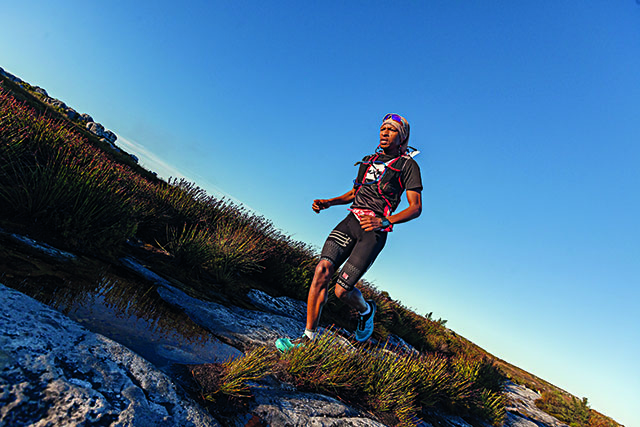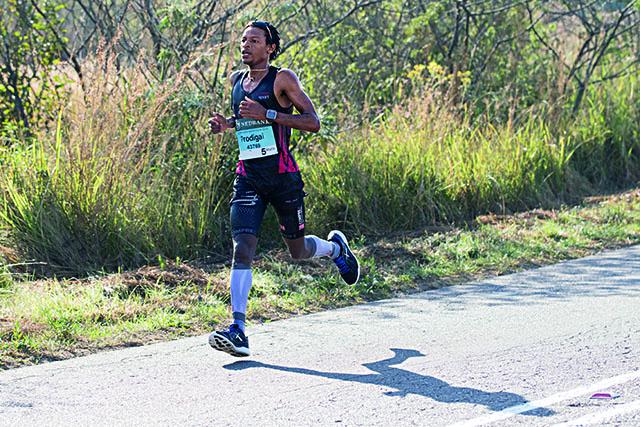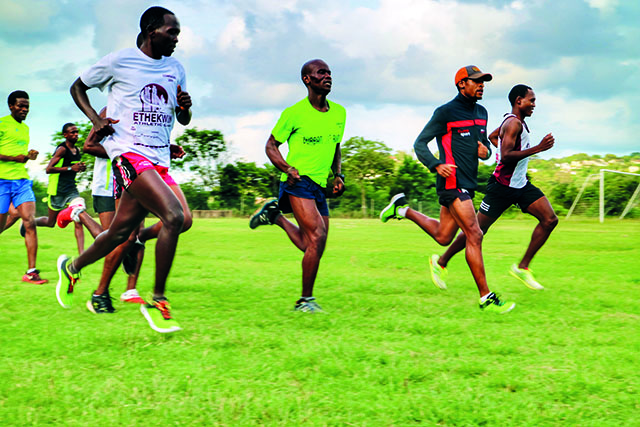Prodigal Khumalo: The Chameleon
Khumalo has transitioned seamlessly from road to trail, but insists his success has more to do with hard work than natural-born luck. By Lisa Nevitt

Zimbabwean-born Prodigal Khumalo honed his athletic skills in South Africa – which resulted in impressive wins in track and field, and at road-running events including the 2010 City2City Marathon. Then, the recent boom in trail and ultra running prompted Khumalo to try his hand at trail running. He won the 100-K event at the 2016 Ultra-Trail Cape Town® (UTCT), in a time of 11:07.12.
Though Khumalo appears to have transitioned seamlessly from track to road and from road to trail, the man of many talents insists his success has more to do with hard work than natural-born luck. To prove it, he balances his running with a 9-to-5 job, and devotes even more of his time managing a development club for disadvantaged youth.

I grew up in the township of Nkulumane in Bulawayo, Zimbabwe, and lived with my late parents, five brothers and one sister. I only started running when I was 18.
Running, for me, has always been about discipline and passion. I used to run barefoot, and I didn’t have access to facilities. Nevertheless, I followed a structured training programme, guided by a coach. Before I competed in ultra-distance events, I focused on development events like track and field, and cross-country.
I moved to Durban primarily for running – the weather there is ideal for doing speed work, all year round. But I also love Durban people, and I can speak the language.
My biggest motivators are Justin Chitake – who first introduced me to running in Bulawayo – and my current team manager Cuan Walker.

Cuan and I started a coaching company, and I’ve since branched out on my own. Developing athletes is important to me, because I myself wasn’t given the opportunity to start running earlier. In order to give my 40 young runners a better chance than I had growing up, I also completed an ASA level-two coaching course and attended personal training classes.
My biggest success story has been Siyabonga Nkonde, because even though he wasn’t selected to represent South Africa at the Rio 2016 Olympics, he did run a qualifying time in the marathon.
My three-month training programme for UTCT was designed by coach John Hamlett. I ran 250km per week, which included stair climbing, hill running, and long runs on the technical trails at Inanda Dam.
It would’ve been impossible to plan my race. Unlike in road running, the terrain is so varied on the trails that it doesn’t allow you to run at a solid pace – there are times when you’re forced to walk or hike. I planned my race during the event, by studying my rivals in the first 20km – I was looking for weaknesses I could take advantage of.
Climbing Table Mountain, I thought I wasn’t going to finish. I battled a lot – so much so that by the time I reached the top, I’d dropped to sixth position.

At Constantia, I still felt drained. But seeing Cuan, spectating with my friend Sphiwe Ngcobo, gave me a second wind. Cuan encouraged me – “You can do it! Keep going!” – and his words stuck in my mind. Despite the fact I had been told I had a win in the bag with just 10km to go, at that stage it felt more like 40km. Still, I kept grinding.
Winning UTCT was the highlight of my running year in 2016. It’s the longest distance I’ve ever tackled, and the fact I had conquered it took a couple of days to sink in. I can’t explain how I managed to run through the pain – but I can certainly say I surprised myself!



